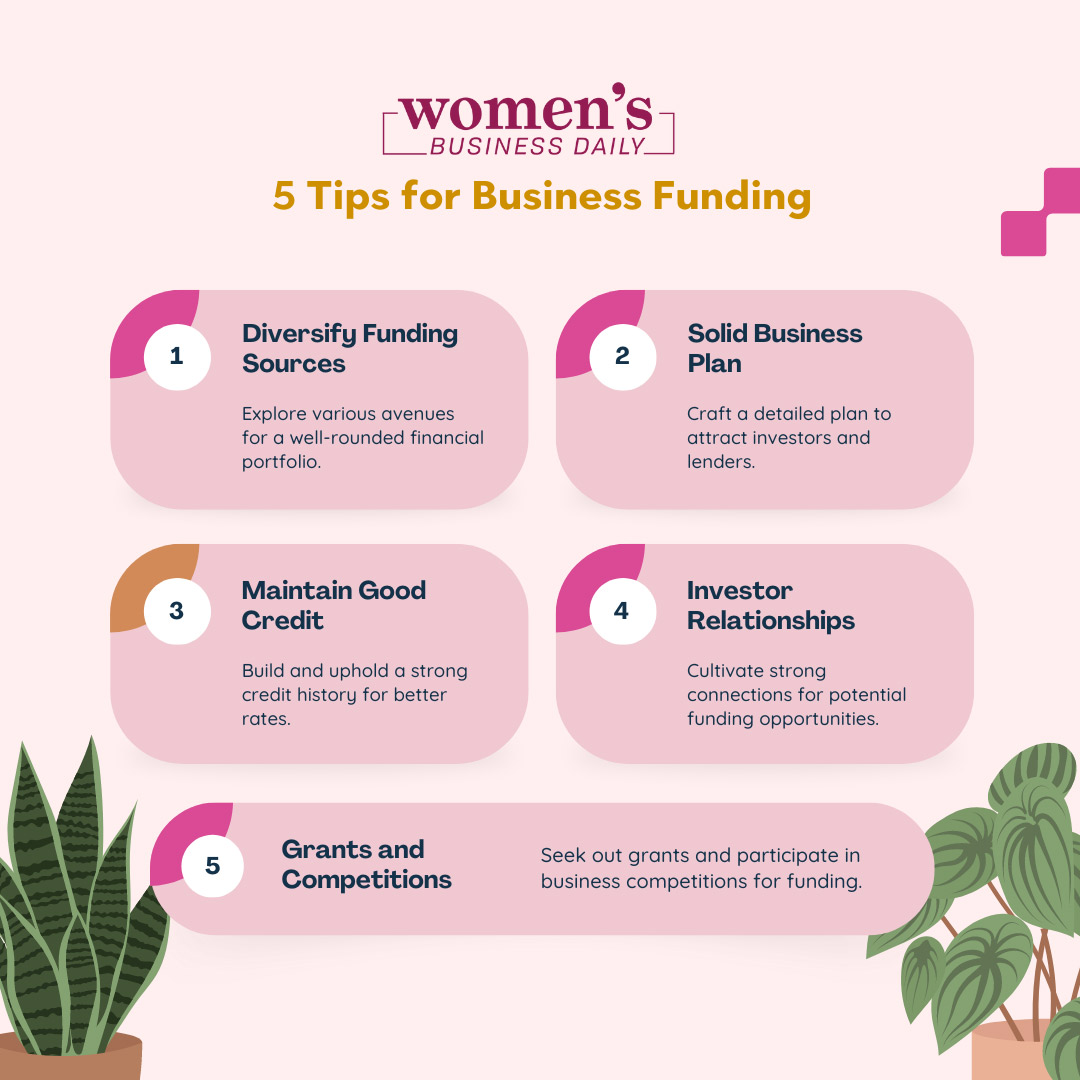With an estimated 12.3 million women-owned firms in the U.S. alone, we’ve seen a major increase in females starting businesses. However, access to capital remains a major barrier for many. Women founders receive only 2.3% of VC funding and often face gender bias when pitching investors.
The good news is more financing options are emerging that provide women entrepreneurs with greater opportunities to fund their ventures. Below, we’ll take a look at numerous funding options and strategies tailored specifically for women-led startups.
Debt Financing Opportunities
Microloans and Small Business Loans
Government-backed microloans and small business loans are accessible options to bankroll growth. The Small Business Administration’s Microloan Program provides up to $50,000 to women-owned businesses, while Community Advantage Pilot loans go up to $250,000. These programs offer more flexibility for those with limited credit history. Tips for securing approval include demonstrating market demand, preparing financial projections, and highlighting any won contracts or customers lined up.
Strategic Use of Credit Cards
While credit cards can provide quick access to capital, it’s critical to avoid spiraling interest costs. Strategically using introductory 0% APR periods can provide short-term financing for inventory and operating expenses. Always make payments on time and set limits on credit card spending to stay financially healthy.
Invoice Factoring/Financing
Generate capital against unpaid customer invoices through invoice factoring, also known as invoice financing. Invoice factoring essentially sells unpaid invoices to a third party at a small discount in exchange for immediate capital.
The factoring company then collects the payments directly when customers pay invoices. This method produces capital much faster than waiting 30, 60, or 90 days for customer payments to arrive. It’s extremely useful for B2B companies, agencies, and service providers that need cash flow to cover operating expenses while awaiting invoice settlements.
According to the Women’s Business Enterprise National Council, invoice factoring usage grew more than 10% from 2019 to 2020, showing how key it is for women-owned firms.
If you’re interested in learning more, take a look at these invoice factoring companies:
Equity Financing Avenues
Women-Focused VC Funds Venture capital firms like BBG Ventures, Raise Global Ventures, and Halogen Ventures invest specifically in women-led startups across industries. They provide not only capital but also invaluable mentorship on everything from product-market fit to scaling. Women founders have seen higher approval rates from these niche funds.
Women’s Angel Investor Groups
Angel investor groups like Pipeline Angels, Phenomenal Women Investors, and The Artemis Fund provide early-stage funding for innovative women-led ventures. Strategically leverage networking opportunities to present your startup to angel investors. Identify relevant regional groups through online research and accelerators focused on female founders. Attend pitch events or set up one-on-one informational interviews to establish relationships before directly pitching investors. You also need a game plan to succinctly convey your competitive advantage, traction, product roadmap, and five-year financial projections.
Additionally, make sure you identify market opportunity, savvy management of resources, and ability to drive ROI. And, confidently address concerns around risk factors to win over investors. It’s important to establish rapport and gain trust in your leadership ability to both rapidly grow and responsibly scale your women-led venture.
Incubators and Accelerators
Incubators like Women’s Startup Lab offer seed funding, coaching, and workspace at an early stage, while accelerators like Springboard Enterprises help established startups scale quickly. These intensive boot camp-style programs give access to mentor networks and potential investors while saving on costs.

Alternative Approaches
Grants and Contests
Organizations like Cartier Women’s Initiative Award and Young Women Social Entrepreneurs Grant funding to women driving social change. Others, like FedEx’s Small Business Grant Contest, also reward women innovators tackling big ideas. Sign up for our newsletter to stay on top of upcoming opportunities.
Crowdfunding
Whether it’s pre-selling products on Kickstarter or seeking donations through GoFundMe, crowdfunding provides community backing. Strong pitches with compelling videos tend to gain traction fast.
If you’re looking to gain early momentum, make sure you develop all rewards, stretch goals, and FAQs upfront while tapping into existing networks.
Partnerships and Alliances
Join forces with an established company to mutually benefit through shared expertise, resources, and customer bases. Align incentives so both gain strategically. This can mean pursuing supplier trade credit, channel partnerships, joint ventures, or simple bartering arrangements.
Steps to Attract Funding
Demonstrating market viability and turnover growth is key to securing most forms of financing when aiming to attract funding. Develop 5-year financial projections, analyze competition, assemble a leadership team with diverse skill sets, and continually enhance your MVP.
Craft a stellar business plan explaining how you’ll scale profitably. Fine-tune pitches that quickly convey your mission, product USP, client traction, future plans, and how funding will be used to fuel growth. Lastly, rehearse until your delivery instills investor confidence. You should have your elevator pitch and your full pitch down and feel confident you could do them anywhere at anytime.
While chasing capital can be challenging, women investors and lenders are creating more possibilities than ever before. With persistence, creativity, and skillful financial planning, your startup can turn dreams into reality. The only limits are those you set yourself. You’ve got this.
Emily Sprinkle, also known as Emma Loggins, is a designer, marketer, blogger, and speaker. She is the Editor-In-Chief for Women's Business Daily where she pulls from her experience as the CEO and Director of Strategy for Excite Creative Studios, where she specializes in web development, UI/UX design, social media marketing, and overall strategy for her clients.
Emily has also written for CNN, Autotrader, The Guardian, and is also the Editor-In-Chief for the geek lifestyle site FanBolt.com
- Emma Loggins Sprinklehttps://www.womensbusinessdaily.com/author/emma-loggins/
- Emma Loggins Sprinklehttps://www.womensbusinessdaily.com/author/emma-loggins/
- Emma Loggins Sprinklehttps://www.womensbusinessdaily.com/author/emma-loggins/
- Emma Loggins Sprinklehttps://www.womensbusinessdaily.com/author/emma-loggins/







